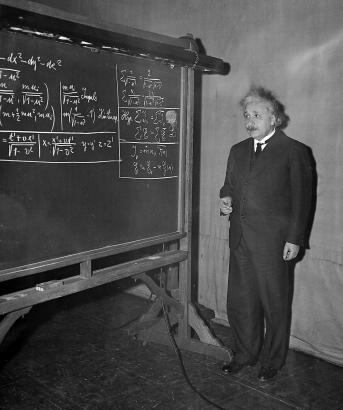Essays and presentations
An essay will be due in class on 11/26. There may also be a short associated presentation in class towards the end of the semester.
Here are suggestions for topics.
- Braid groups
- Möbius transformations: the symmetries of the hyperbolic plane
- Group theory on the Cornell campus. This one might take some imagination! Search for and write about group theory on the Cornell campus (e.g. in the architecture, in the flora, or in any other setting you can find).
- Some aspect of group theory in physics
- Group theory and spectroscopy. This article might be a good starting point.
- Group theory and crystallography. Wikipedia is a good start.
- The Lovász Conjecture. This concerns paths in Cayley graphs.
- Group theory in campenology
- Growth in groups. See Groups, Graphs and Trees by John Meier, for example.
- The lamplighter group. See Groups, Graphs and Trees by John Meier, for example.
- Burnside's problem
- The history of group theory: how did the modern concept of a group emerge? The wikipedia page on group theory is a reasonable start.
- Group theory in music. See David Benson's Music: a mathematical offering, for example.
- Enumerating isomers using group theory. Kennedy, McQuarrie, Brubaker
- The Word Problem for groups. See Groups, Graphs and Trees by John Meier, for example.
- Group theory and Klein's Erlangen Program
Alternatively, you are welcome to come up with your own topic. Explaining links between group theory and other academic areas of interest to you, would be particularly welcome. Two provisos are that you may not duplicate work you have done elsewhere and there must be some genuine group theory involved.
|
To gauge the appropriate level and style, imagine you are writing for your classmates. Explain why your topic is interesting and important, and convey the main ideas. Some subjects will allow you to go into the details of the mathematics. Others lend themselves better to a more journalistic approach, as the mathematics may be too technical or too substantial. Whatever style you choose, try to include at least some mathematical detail.
Please aim for about 2500 words.
Please take care over your presentation and try to make your writing fluent and compelling. I do not insist you type your essays, but I do recommend it. LaTeX and its variants can produce beautifully typeset mathematics, but other software is also viable.
|

|
Cornell's Academic Integrity Code states that a Cornell student's submission of work for academic credit indicates that the work is the student's own. All outside assistance should be acknowledged, and the student's academic position truthfully reported at all times. Please include a full bibliography of articles, books, web sites etc. Any text lifted from a source should be presented as a quotation. If you base some exposition on someone else's writing, you should acknowledge the source. You may not collaborate on these essays.
Students agree that by taking this course all
required papers may be subject to submission for textual similarity review to Turnitin.com
for the detection of plagiarism. All submitted papers will be included as source documents
in the Turnitin.com reference database solely for the purpose of detecting plagiarism of such papers. Use of the Turnitin.com service is subject to the Usage Policy posted on the
Turnitin.com site.
Timetable for presentations
21 November
| Zachary | Group theory in crystallography |
| Christine | Group theory in physics |
| Han | Enumerating isomers |
| Daqian | Lie groups |
26 November
| Peter | The Lovász Conjecture |
| Mike | The Lovász Conjecture |
| Andrew N. | Music and group theory |
| Kelvin | Music and group theory |
3 December
| Rose | Braid groups |
| Katherine | Braid groups |
| Colleen | Rubik's cube groups |
| Andrew C. | Group theory and cryptography |
5 December
| Pra | Galois theory |
| James | The Banach–Tarski Paradox |
| Will | History of group theory |
| Lisa | Burnside's Problem |
Some guidance on giving presentations
—
Our classes are 75 minutes long. We will devote four classes to these presentations, four per class. Please prepare a 15 minute talk, leaving a few minutes for questions and for completing a brief feedback form.
|
—
In the instances where two of you are speaking on the same topic, please collaborate in making a 30 minute presentation, with each of you presenting for 15 minutes. Decide who will go first and how to divide up the material.
|
| — Fifteen minutes is a short amount of time for a technical presentation. Do not try to say too much. (When presenting mathematics for the first time in front of an audience, it is a common mistake to prepare about three times as much material as you have time for.) You only really have time to make one main point. So choose one thing to communicate, rather than trying to convey the entirety of your essay. You are unlikely to have time for a detailed proof of anything.
|
| — The aim of your talk should not be to convince me that you have understood a lot of mathematics. Rather, your aim should be to communicate some interesting mathematics to your classmates.
|

|
— You might be wise to deliver a practice run-through of your talk to a friend. Or you could pair off with a classmate and practice.
|
| —
Please attend everyone else's talks. These talks are a continuation of the course: subjects we have learnt about will be developed further, and new important topics will be introduced. I hope you will support and encourage each other, and learn about different ways of giving talks from each other's example.
|
— I am available to advise you on the content of your talk. Please come to office hours or e-mail me to make an appointment.
|
— Please feel free (encouraged even) to ask questions in each other's talks.
|
— Please acknowledge your sources.
|
| — Please think about how you will present your talk. Write clearly on the blackboard. We will not have time to set up projectors for computers or for transparencies. Some of the topics may benefit from pictures, but these may be too time–consuming to draw on the spot in class, so you might like to prepare handouts.
|
|